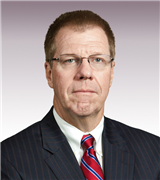 Kevin Cosgrove, Hunton & Williams
Kevin Cosgrove, Hunton & Williams
For months on the campaign trail, Donald Trump promised that he would increase pressure on American companies to “Buy American” and “Hire American.” His Executive Order dated April 18, 2017 is the first step in that process. VSRA members need to be aware of both the text and possible ramifications of this Order.
The Order itself contains few specifics. It does, however, send a clear message as to how this Administration plans to proceed in these areas. In order to advance its “Hire American” agenda, the Order states that:
“It shall be the policy of the executive branch to rigorously enforce and administer the laws governing entry into the United States of workers from abroad.”
The Order directs the Secretaries of State, Labor and Homeland Security, in conjunction with the Attorney General, to “propose new rules and issue new guidance, to supersede or revise previous rules or guidance if appropriate, in order to protect the interests of United States workers in the administration of our immigration system.” The Order also directs those entities to suggest reforms to the HB-1 visa program “to help ensure that HB-1 visas are awarded to the most-skilled or highest-paid petition beneficiaries.” Currently, HB-1 visas are awarded via a lottery-type format. This Administration’s clear goal is to repurpose the HB-1 visa program to award such visas only to persons possessing exceptional qualifications and the ability to command high wages. The Administration plans to monitor closely the HB-1 program to ensure it does not have an adverse effect on U. S, workers.
Much more significant for VSRA members, however, are the provisions of the Order that are intended to advance the “Buy American” portion of the agenda. The Order provides that:
Within 150 days of the date of this order, the heads of all agencies shall:
(i) assess the monitoring of, enforcement of, implementation of and compliance with Buy American laws;
(ii) assess the use of waivers within their agencies by type and impact on domestic jobs and manufacturing; and
(iii) develop and propose policies to maximize the use of materials, including manufactured products that are produced in the United States.
It is clear that this Administration intends to enforce vigorously the “Buy American Act” (41 U.S.C. § 8301 et seq.), the “Trade Agreements Act of 1979” (19 U.S.C. § 2501 et seq.) which provides exceptions to the Buy American Act for products from certain countries, and other laws that more narrowly protect certain specific products. Depending on the industry, determining whether a part or a product complies with these laws can be challenging. This order promises to make this determination both more important and more difficult. Companies that have contracts containing Buy American requirements should take steps now to ensure that they are in compliance with these provisions.
The order addresses how public interest waivers from Buy American provisions can be obtained. Currently, depending on the reason for the request, some waiver decisions are made by individual contracting officers. But under the order, “waivers shall be made by the head of the agency … under consideration” (emphasis added). It is safe to expect that waivers from Buy American requirements will be more difficult to obtain during the next four years.
Finally, it is reasonable to assume that these changes, once implemented, will form the basis of both more bid protests and more False Claims Act lawsuits. The takeaway is clear. If you are subject to Buy American requirements in your contracts, begin evaluating your supply chain now. Waiting until the expected new provisions are in place may be too late.
About the Author
Kevin Cosgrove is an attorney in the Norfolk office of Hunton & Williams. Kevin’s practice focuses on government contracts and procurement law, construction advice and litigation, and general business litigation. He has taught numerous seminars on government contracting, construction litigation, and the proper use of expert witnesses. In his spare time he plays golf and participates in triathlons.
« Return to Newsletter